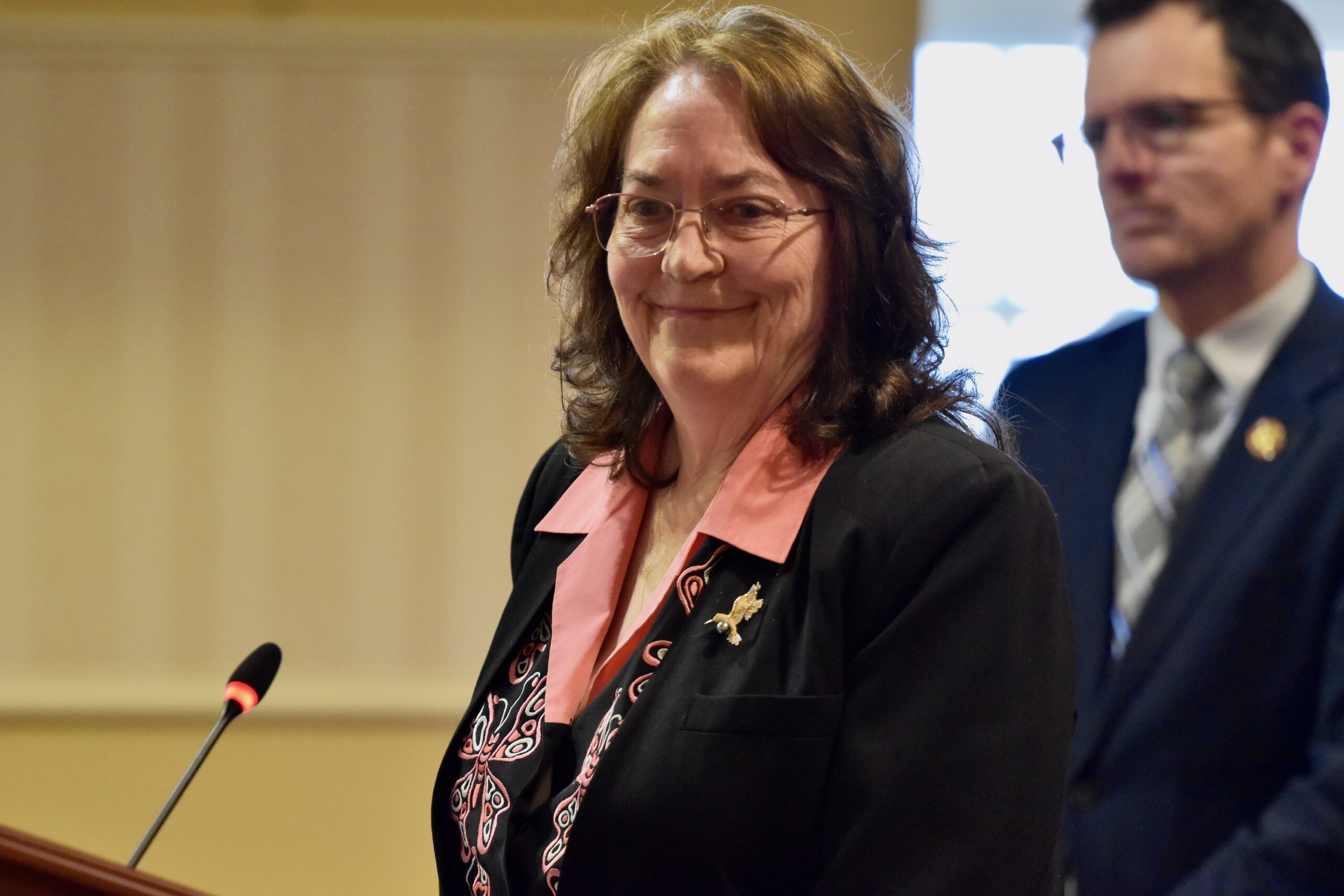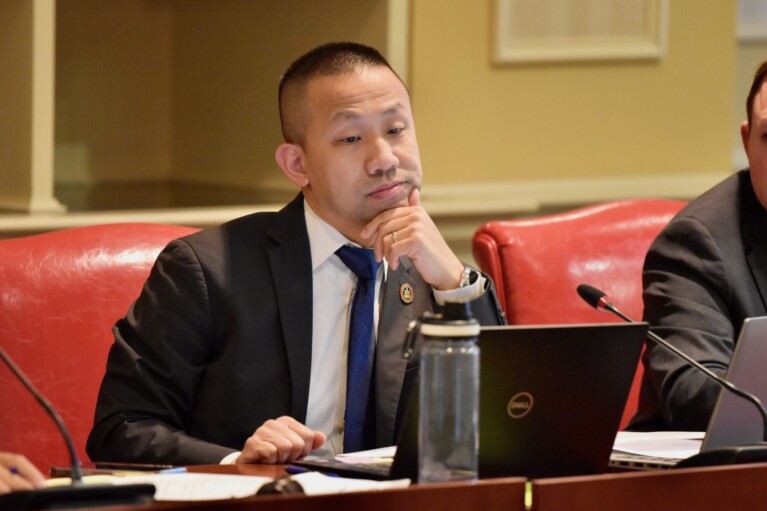Elections Board Backs Plan to Curtail Wireless Network to Transmit Voter Info.
State elections officials voted Thursday to give Maryland’s largest counties a choice on whether to connect to a new wireless data network in the 2020 elections ― but will keep hundreds of routers in operation even if counties choose not to fully implement the systems.
The network in question has faced questions since Montgomery County officials balked at installing the system, which was meant to transmit real-time voter registration changes from the pollbooks used to check in voters to the state office in Annapolis during voting.
State elections administrators said earlier this month that the network would become optional for counties interested in using it. State Board of Elections Vice Chairman Patrick J. Hogan suggested on Thursday that the board cast a public vote in favor of the staff decision. A majority of the board supported policies to allow counties to choose whether to use the networks during the April primary and November general elections.
During the Feb. 5 special primary to fill a congressional vacancy in the 7th District, the system performed as expected for much of the day, but data transmissions to the state office in the late afternoon slowed performance of pollbooks and caused delays in the voter check-in process.
Elections board members were briefed on Thursday about the cause of the delay, but a detailed explanation was reserved for closed session. Maryland’s Deputy Election Administrator Nikki Charlson said the state office has been investigating the cause of the slowdown. A multi-day test of the system confirmed that the state database became locked when performing multiple functions, which in turn prevented the pollbooks from retrieving requested voter data and slowed down the process. After making adjustments to the database performance settings, a similar slowdown did not occur during a test of more than 600,000 transactions, she said.
Nevertheless, the system will remain optional for counties that do not want to connect to the database on the upcoming election days. Counties will be required to connect to the database during early voting periods ― when a substantially smaller number of voting locations are open in the state ― just as they have since 2010 to ensure that a voter does not cast a ballot in more than one location.
State officials also sought to reassure the board and public about the security of the network.
Hogan said he thought “wireless” was too simple a way to explain how voter data was transmitted and that it evoked notions of running to the local Starbucks to surf the web.
Representatives of Cradlepoint, which sold the routers used by the state, said their technology transmits encrypted data over an LTE network, not dissimilar from the way an ATM connects to a bank.
Board member Kelley Howells voted against continued use of the routers for pollbook networking. Howells said she didn’t doubt that the system created by the Board of Elections staff was secure, but she hadn’t been convinced of the need to install the system, which was to be used and paid for by the state’s six largest jurisdictions ― Baltimore City and Anne Arundel, Baltimore, Howard, Montgomery, and Prince George’s counties.
Howells asked whether the routers, which cost about $1,300 per precinct could be returned for counties that don’t wish to connect with the state office’s database. Charlson said the routers will instead be used as a hub for wired connections between a precinct’s pollbooks in counties that don’t wish to transmit data to the state. Howells argued that finding a new use for the routers was committing the sunk cost fallacy.
Montgomery County has already indicated it doesn’t plan to connect to the server in the 2020 elections and Prince George’s County doesn’t plan to connect during the April primary.
Howard County officials have indicated that they will continue to connect with the state’s database and use the new system to monitor pollbook performance, Charlson said. Howard is one of the jurisdictions in the 7th District so has had real-time experience with the system.
During the special election, the county’s elections director was able to identify a malfunctioning pollbook and send technical support to a precinct before judges there even made a call for assistance, Charlson said. It was also in Howard County where the initial slowdown was detected, but once the pollbooks were disconnected from the network, the problems were resolved.
The special election in the 7th District also served as a testing ground for a new state policy meant to increase the use of ballot-marking devices to increase privacy for voters with disabilities, which is the subject of an ongoing lawsuit.
While the vast majority of voters hand-mark 8 ½ by 11-inch ballots, voters who are blind or have motor disabilities can use an ExpressVote ballot marking device, which produces a paper ballot that is a different size – 4 ½ by 14 inches – and list only the candidates the voter selected, making those votes cast by Marylanders with disabilities immediately identifiable and impairing the right to a private ballot, advocates say.
The state board voted over the summer to encourage greater use of the devices by all voters ― including at least five per precinct ― which would help anonymize the ballots filled out by voters with disabilities.
During the special election, at least five ballots were cast by marking devices at 178 of 184 polling places in the city of Baltimore and at every polling place in Baltimore and Howard counties.




 Creative Commons Attribution
Creative Commons Attribution